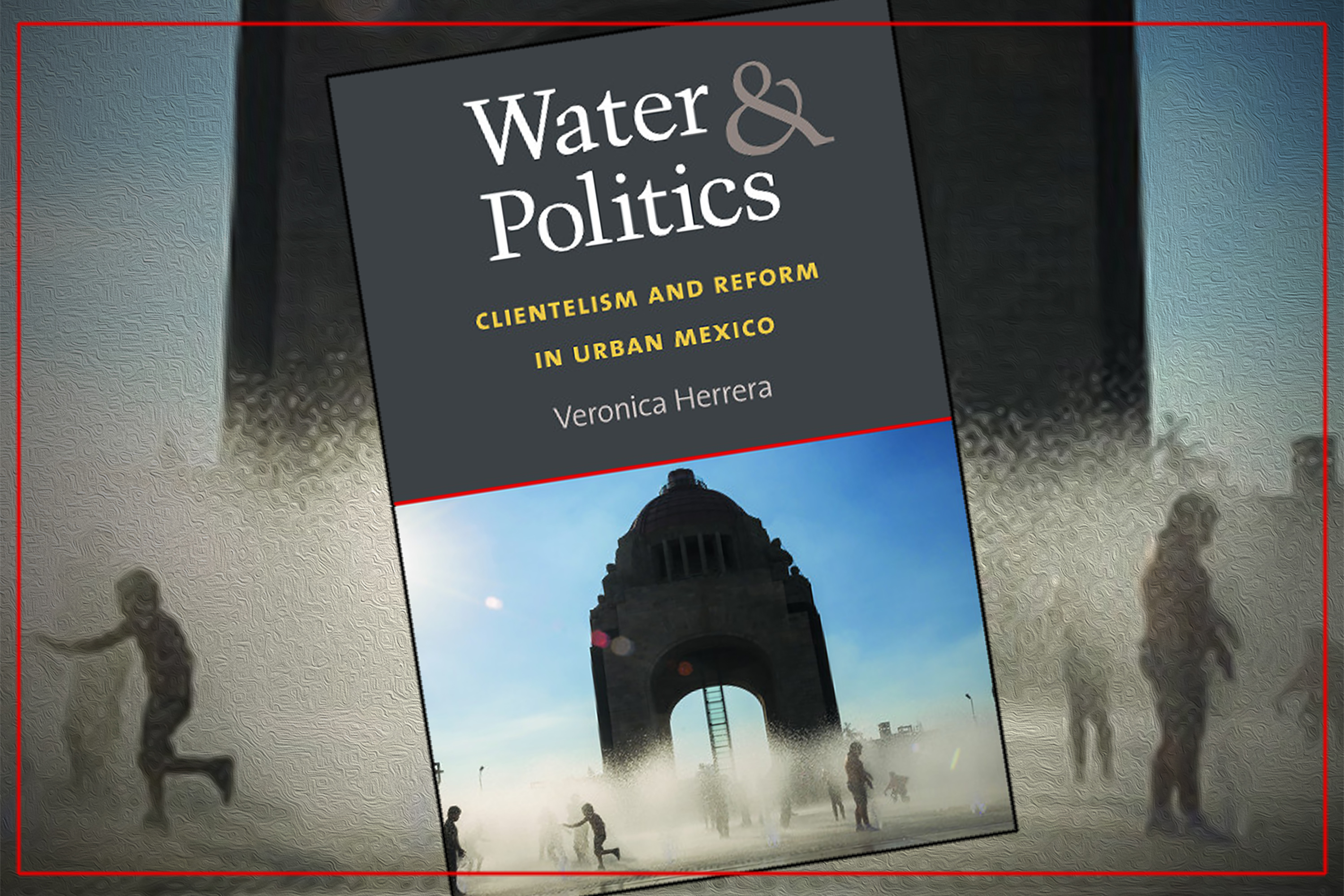Safe water for drinking is necessary for life on Earth. The rise of civilization began along the banks of rivers and waterways and was important to the development of agriculture, commerce and advances in industry, science and technology.
But water also historically has been a factor in politics, where decisions about the delivery of government services can help or harm people depending on their access to clean water.
“What’s not tied to water?” says Veronica Herrera, assistant professor of political science in the College of Liberal Arts and Sciences, and the author of Water and Politics: Clientelism and Reform in Urban Mexico, recently published by the University of Michigan Press. “Our food supply, our health, industries and businesses need water. Everything is tied to it; it’s not a trivial issue.”

Herrera says access to water is a political issue particularly in young democracies emerging in developing nations, where it is an essential service provided by government. Clientelism is the political science term for the exchange of material resources for the vote, sometimes referred to as patronage, or buying votes. She describes how these practices existed as the United States developed and expanded westward in the 19th century and today can be commonplace in developing nations in Asia, Africa and Latin America.
In her study of several regions in Mexico Herrera found that during the week of an election, state officials turned off water to cities where the opposition party was in control in order to create chaos for local elected officials as voters went to the polls. In other instances, politicians redirected water from one population area to another purely for partisan reasons.
Her research traces the 70-year history of eight metropolitan districts governed by the Partido Revolucionario Institucional (Institutional Revolutionary Party) and how water services changed following the transition to opposition political parties and the ability of some citizens to influence political decisions.
“Middle class consumers have more financial security and purchasing power. They are more involved and make organized demands on the government,” Herrera says. “They also are more linked to the water-intensive industries that manufacture products that need good water quality. The party that comes to power in those cities is more responsive. It’s the middle class communities that are more able to pay a little bit more money and get better services.”
“When we become more literate about how politics influences natural resources management, we are more effective in holding government accountable.” — Veronica Herrera
In addition to human consumption, there are water needs for commercial and manufacturing uses. In Mexico, for example, Herrera says leather tanneries use water to manufacture leather products such as shoes, clothing and automobile seats. Water is also an important part of food processing.
“Any kind of negative effect of that production on the environment or on people’s health affects those local people,” Herrera says. “If they’re having water scarcity, or if their water supply is contaminated because of production, they are the ones being affected. The water crisis is very local; it affects different countries in different ways. At the same time, it’s greatest humanitarian impact is in water scarce areas in the developing world.”
She notes the politics of water also is linked to issues centering on infrastructure, most often the deterioration of pipes buried underground for many decades that can result in water contamination. Herrera says politicians would rather build something new rather than repair something old, a factor that is global in nations around the world, including in the United States.
“Politicians love to create infrastructure because they are able to cut ribbons on infrastructure,” she says. “It’s big it’s bold, it’s beautiful. To maintain invisible, underground infrastructure you have to literally rip up all the roads; it’s very expensive and disruptive to people. A politician is in office a short time and is always thinking about the short-term political calculation. Engineers can say it’s going to break, there are going to be these issues, but politicians often see it as another guy’s problem. That’s the challenge. These issues get attention when there is a crisis.”
Over the past two decades, global studies on water have reported ongoing issues. In 2008, the United Nations Millennium Development Goals Report said that while there is greater access to drinking water, there are still about 1 billion people without access to safe water and more than 2.5 billion people without good sanitation. The Charting Our Water Future Report by a consortium of business partners in 2009 said that water demand will exceed supply by 50 percent in 2030.
Herrera says she hopes people will understand that many times political decisions, not scientific reasoning determines the fate of natural resources, the environment or other key resources.
“We need to be aware of that when we are making policy recommendations or trying to change the way those resources are managed. We also need to be aware of that as citizens,” she says.
“When you have strong societal demands, that’s when you make a difference in how our resources are managed and distributed. When we become more literate about how politics influences natural resources management, we are more effective in holding government accountable and exercising citizenship rights associated with access to clean water, land and air.”



